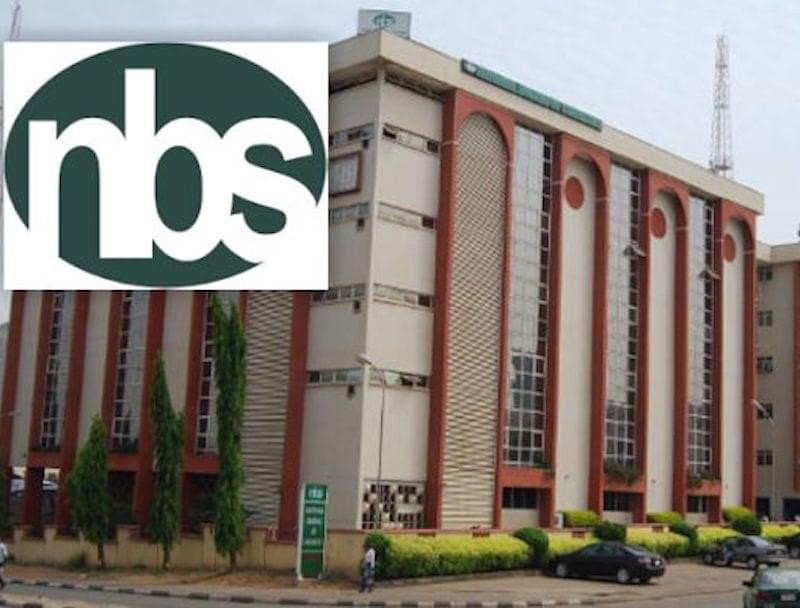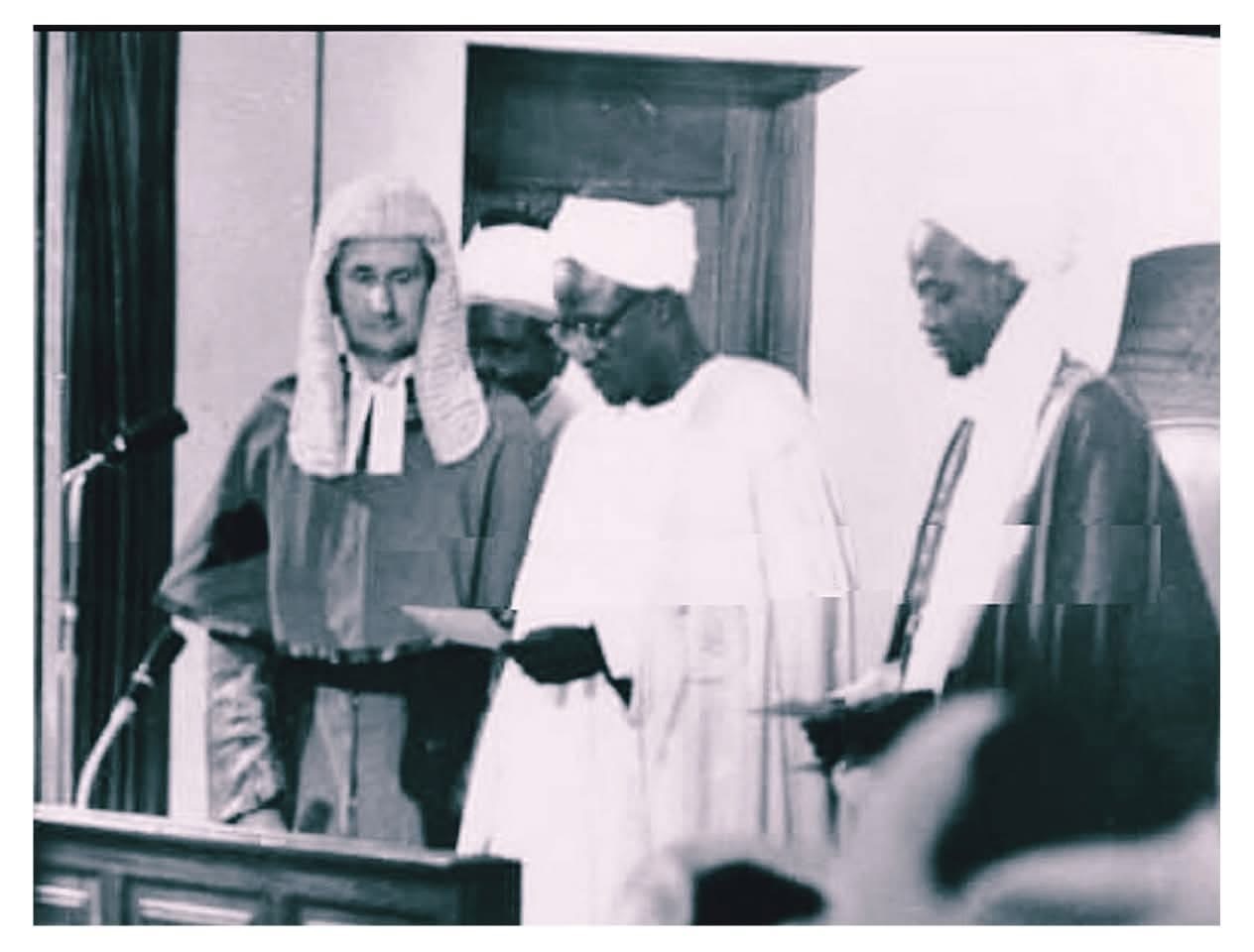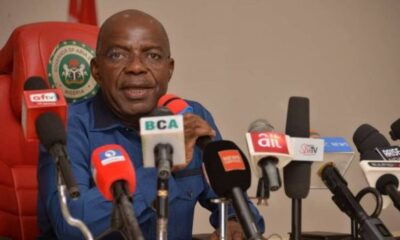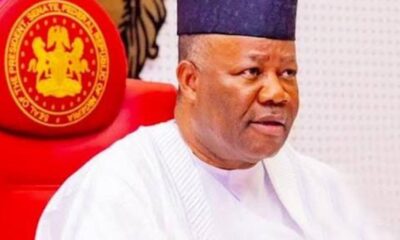Columns
Cost of Healthy Diet in Nigeria Soars to N1,241 in June, Marking 19.2% Increase, NBS Reports

NBS has reported a 19.2% increase in healthy diet cost to N1,241 in June, with regional disparities and inflation impact noted.
The national average cost of a healthy diet in the country increased to N1,241 in June, representing a 19.2 per cent increase compared to N1,041 in the preceding month, the National Bureau of Statistics (NBS) said
According to the Cost of Healthy Diet (CoHD) June 2024, released by the statistical agency, diet was highest in the South-west at N1,545 per adult per day, compared to N956 per adult per day in North-west.
The NBS noted further that the CoHD had risen faster than general inflation and food inflation in recent months.
Furthermore, at the state level, Ekiti, Ogun and Osun states recorded the highest cost with N1,640, N1,599, and N1,557 respectively.
Katsina, Kano and Jigawa accounted for the lowest costs with N878, N926 and N937.
At the zonal level, the average CoHD was highest in the South-west Zone at N1,545 per day, followed by South-south Zone with N1,376 per day.
The lowest average Cost of a Healthy diet was recorded in the North-west Zone with N956 per day
However, the CoHD and the food inflation are not directly comparable; the CoHD includes fewer items and is measured in Naira per day, while the food CPI is a weighted index, it clarified.
Essentially, the CoHD is the least expensive combination of locally available items that meets globally consistent food-based dietary guidelines.
It is used as a measure of physical and economic access to healthy diets.
This represents the lower bound, or floor of the cost per adult per day excluding the cost of transportation and meal preparation.
According to the NBS, the data provides important information about food access, a key aspect of food security, which is useful for government, civil society and development partners, private sector, and researchers.
It stated, “For instance, where the Cost of a Healthy Diet is high, it is possible to identify which least-cost items and food groups are driving the high cost. Stakeholders can identify supply challenges in specific foods or food groups to be addressed, for example with improved production, distribution, or market access.
The Cost of a Healthy Diet can also inform: the minimum income needed by households to access a healthy diet, and social protection and transfer amounts for vulnerable populations.
Prioritisation of commodities for agricultural production and trade policy interventions. Targeting interventions, including nutrition education, to populations with the most potential to benefit; nutrition education is only effective when people can afford to comply with the recommendations.
Research on the relationship between food access and other food system factors and outcomes. These results can also foster collaboration among a wide range of stakeholders, such as policymakers, researchers and civil society actors that focus on food security, to devise strategies that tackle access, availability, and affordability of healthy diet effectively.
“Future research incorporating income can also be used to determine the proportion and number of the population that are unable to afford a healthy diet.”
Columns
Sir Kashim Ibrahim at His Swearing-In as Governor of Northern Nigeria

A defining moment in the transition from colonial rule to indigenous leadership in Northern Nigeria.
The image depicts Sir Kashim Ibrahim during his swearing-in ceremony as Governor of the Northern Region of Nigeria, an event that marked a significant milestone in Nigeria’s political evolution. While the photograph is often dated to the late 1950s, historical records confirm that Sir Kashim Ibrahim assumed office in October 1960, shortly after Nigeria attained independence from British colonial rule.
Sir Kashim Ibrahim was appointed Governor of the Northern Region from 1960 to 1966, becoming the first indigenous Nigerian to hold the office. His appointment symbolised the transfer of political authority from colonial administrators to Nigerians and reflected the emerging autonomy of the regions within the newly independent federation.
Born in 1909 in Maiduguri, present-day Borno State, Kashim Ibrahim was a distinguished educator, administrator, and politician. Before entering politics, he had a notable career in education, serving as Provincial Education Officer and later as Minister of Education for the Northern Region, where he played a key role in expanding access to Western education in Northern Nigeria.
The office of Governor during this period was largely ceremonial but politically significant. It represented the Crown at the regional level while reinforcing constitutional governance under Nigeria’s federal structure. As governor, Sir Kashim Ibrahim worked closely with the Northern Region’s political leadership, particularly the government of Sir Ahmadu Bello, the Sardauna of Sokoto, who served as Premier.
His tenure coincided with a formative period in Nigeria’s post-independence history, characterised by efforts at nation-building, regional development, and managing the complexities of ethnic and political diversity. Sir Kashim Ibrahim remained in office until January 1966, when Nigeria’s First Republic was overthrown following the military coup that ended civilian governance.
Beyond politics, Sir Kashim Ibrahim is remembered for his enduring contributions to education and public service in Northern Nigeria. His legacy continues through institutions named in his honour, most notably Sir Kashim Ibrahim College of Education in Maiduguri, which stands as a testament to his lifelong commitment to learning and leadership.
The photograph remains a powerful historical record, capturing a moment when Nigeria formally embraced indigenous leadership at the highest levels of regional governance.
Sources
Falola, Toyin & Matthew Heaton. A History of Nigeria. Cambridge University Press.
Coleman, James S. Nigeria: Background to Nationalism. University of California Press.
Nigerian National Archives, Kaduna – Records of Northern Regional Government (1960–1966).
Columns
Davido’s baby mama, Sophia Momodu, claps back at Snapchat user who accused her of flaunting a replica bag

Sophia Momodu has responded sharply after a Snapchat user tried to drag her over an alleged replica designer bag.
The user accused Sophia of “flaunting a replica” and warned her that this is an era where fake items are easily detected, advising her to stop “setting herself up for drags.”
Sophia was clearly not having it.
In a blunt response, she fired back, telling the user to “hold your chest and say God release me from witchcraft,” adding a sarcastic “you wish?” to shut down the allegation.
https://www.instagram.com/reel/DSMmzu8jMMN/?igsh=dDR3d2Q3ZXgxYWJu
Columns
Charlie archibong akwa ibom man the deadliest Biafra war lord

“Brigadier Archong” (also referred to as Colonel Charlie Archibong) was a prominent Biafran commander during the Nigerian Civil War (1967-1970), known for his bravery and key role in the Biafran invasion of the Midwest region.
Key Activities During the War
Midwest Invasion Commander: Colonel Archibong was the lead commander of the Biafran forces that invaded Nigeria’s Midwest region on August 9, 1967. His orders were to advance rapidly through the West and capture Dodan Barracks in Lagos within 48 hours. The advance was halted by a controversial retreat order from Brigadier Victor Banjo at Ore, which ultimately led to the failure of the offensive.
Ojukwu blamed himself for not letting achuzie or Charlie archibong lead the troops to capture Nigeria capital city Lagos after the Biafran capital city Enugu was attacked by the Nigerian, even after Charlie archibong territory fell to the Nigerian military Charlie archibong and his people mostly lead to lay a deadly ambush against the Nigerian army in Calabar and akwa ibom and pH and this action Also lead to the killing of innocent civilians by Nigeria army not only Asaba experienced massacred south south of today veteran can testify
Key Biafran Fighter: Archibong was considered one of General Odumegwu Ojukwu’s most trusted and gallant fighters. He was known by the nickname “Charlie Bazooka” and was respected for his zeal and determination.
Further Action: After the Midwest campaign, he saw more action around Ikot Ekpene.
Disappearance/Death: Archibong was reported missing after an officer-led reconnaissance operation, and his command headquarters waited in vain for his return. Sources suggest he may have been killed through internal sabotage within Biafra.
Archibong is remembered as a significant figure in the Biafran military, often appearing in historical photos alongside Ojukwu as a “war hero.
-
Business1 year ago
US court acquits Air Peace boss, slams Mayfield $4000 fine
-

 Trending1 year ago
Trending1 year agoNYA demands release of ‘abducted’ Imo chairman, preaches good governance
-

 Politics1 year ago
Politics1 year agoMexico’s new president causes concern just weeks before the US elections
-

 Politics1 year ago
Politics1 year agoPutin invites 20 world leaders
-

 Politics1 year ago
Politics1 year agoRussia bans imports of agro-products from Kazakhstan after refusal to join BRICS
-
Entertainment1 year ago
Bobrisky falls ill in police custody, rushed to hospital
-
Entertainment1 year ago
Bobrisky transferred from Immigration to FCID, spends night behind bars
-
Education1 year ago
GOVERNOR FUBARA APPOINTS COUNCIL MEMBERS FOR KEN SARO-WIWA POLYTECHNIC BORI













